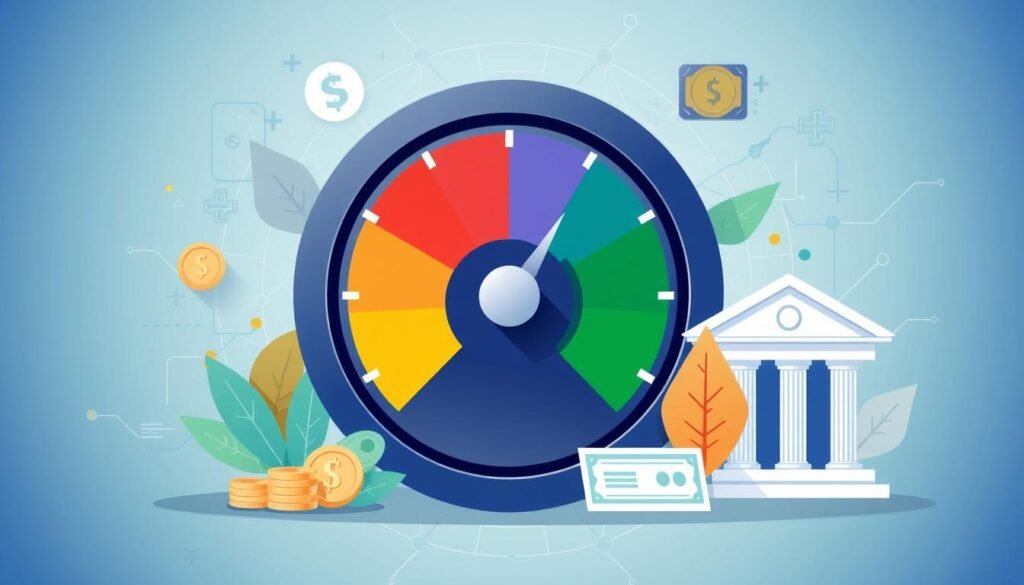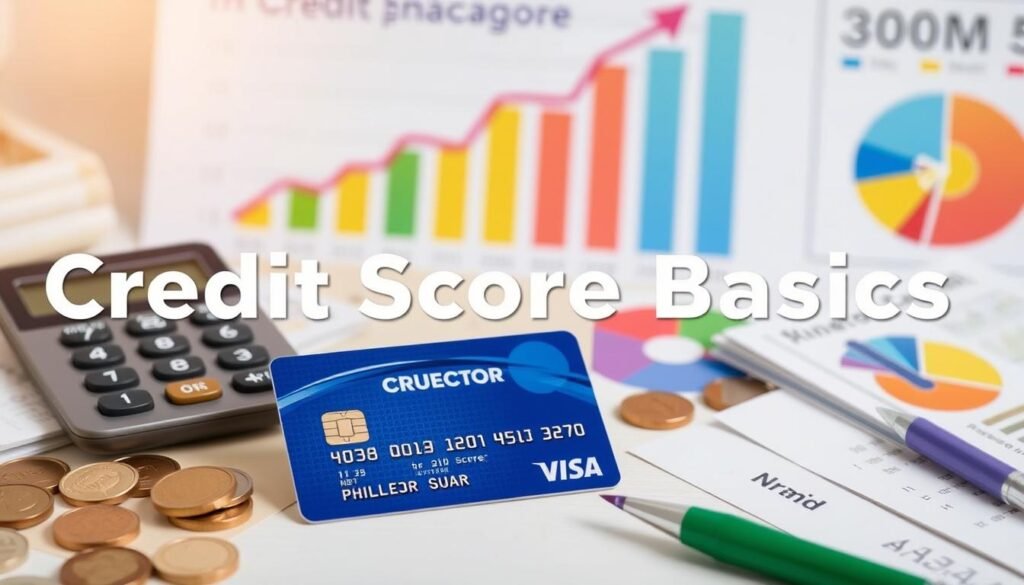This post may contain affiliate links, which means I may earn a commission if you purchase through these links at no extra cost to you
When I first started trying to build credit, it honestly felt like climbing a mountain with no clear path. Without any credit history, I found it hard to get approved for credit cards, loans—or even to rent an apartment. But once I began learning the steps, things started to make more sense.
One of the first moves I made was getting a secured credit card. I put down a $500 deposit, which became my credit limit. It helped show lenders I was responsible and opened the door to better cards later on.
I also realized just how important payment history and credit utilization are. Paying on time is non-negotiable—it makes up 35% of my FICO Score. One late payment can stick around for years, so I set up reminders and auto-pay to stay on track.
I check my credit reports regularly and space out my credit card applications by at least six months to avoid too many hard inquiries. Building credit may seem overwhelming at first, but with the right habits and a little patience, it gets easier—and the rewards are absolutely worth it.
Table of Contents
ToggleUnderstanding Credit and Its Importance
Credit is key in many parts of your financial life. It helps you get good deals and opportunities. When you know how credit works, you can better manage your finances. Using credit monitoring tools, you can know your credit status and work to improve it.
Why Credit Matters
Good credit is vital in the U.S. for getting a house, good loan terms, and jobs. Credit scores fall between 300 and 850. A score above 690 is good, and 850 is excellent. Timely payments make up 35% of your score, so pay on time. Debt compared to your credit limit is another 30%, so keep your debt low.

Impact of Credit on Everyday Life
Your credit score affects more than loan approvals. It decides your credit card interest rates, which can be between 6% and 36%. Your credit score can also impact renting a house or getting a job. Better credit means you get better terms and save money. Using credit monitoring tools helps you make smart financial choices.
Credit Score Basics: What You Need to Know
Knowing about credit scores helps you manage your money better. A credit score can be as low as 300 or as high as 850. The higher your score, the better you look to lenders. Your score adds up from things like how on time you are with payments, how much of your credit you’re using, and if you’ve asked for new credit recently. Each part has its own weight in your total score.

Components of a Credit Score
Here’s how a credit score breaks down:
- Payment History: 35% – Being timely with payments matters the most.
- Amounts Owed: 30% – It looks at how much credit you’re using versus what you have available.
- Length of Credit History: 15% – Longer credit histories usually mean higher scores.
- Credit Mix: 10% – Having different types of credit helps your score.
- New Credit: 10% – Too many hard checks on your credit can lower your score.
FICO vs. VantageScore
FICO and VantageScore are two big names in credit scores. Both use a 300 to 850 range. But they differ in some ways:
| Criteria | FICO | VantageScore |
|---|---|---|
| Score Range | 300-850 | 300-850 |
| Versions | FICO Score 8, 9, 10, 10 T | VantageScore 3, 4, 4plus |
| Account Age Requirement | At least six months | Can be generated sooner |
| Hard Inquiries Timeframe | 12-month impact | 30-day impact |
FICO scores are what most lenders use and matter for different financial products like credit cards and loans. VantageScore is also important. It’s liked for its fast generation and softer look at hard inquiries.
Using Secured Credit Cards
Secured credit cards are great for building or fixing your credit. They need a cash deposit that sets your credit limit. This lowers the risk for the card issuer and helps folks with little or bad credit qualify. By building a credit history and following key tips, these cards can improve your financial standing.

What is a Secured Credit Card?
A secured credit card is similar to a regular one but needs a cash deposit first. This deposit, which is usually $200 to $500, becomes your limit. It’s a way to build credit safely. It’s important to keep your spending under 30% of this limit and pay on time to help your credit score grow.
Benefits of Secured Credit Cards
Secured credit cards help you build or fix your credit score. They report your habits to the big credit bureaus, helping you create a credit history. For instance, the Discover it® Secured Credit Card has deposits from $200 to $2,500. Your limit matches your deposit. When you use it right, you can move to an unsecured card. The Capital One Platinum Secured Credit Card is one option, starting with a $49 deposit for some users.
Choosing the Right Secured Card
Choosing the right secured credit card needs careful thought. Find a card that reports to all three major credit bureaus. This makes your credit history known widely. Watch out for annual fees, as they differ between cards. Also, look into each card’s perks, like a low starting deposit or a higher limit. Banks and card issuers offer tools to check your credit score. These tools are crucial for seeing your progress and finding chances to switch to unsecured cards.
Building Credit Tips for Beginners
Starting your journey to build credit can seem hard at first. But, with smart tactics, you can improve your credit score and get a good credit history. Try these easy tips to begin:
Using secured credit cards is a great first step. You’ll need to make a security deposit, usually about $200, to set your credit limit. Pay on time and keep your balance low to show you’re reliable. This will help raise your credit score and might let you move to a regular credit card later.
Becoming an authorized user on another’s credit card can also help. If they have good credit and add you, their good credit habits can boost your score. But, make sure they keep up their good habits. Any mistakes made can hurt your score too.
Keeping your credit usage low is important. Try to use less than 30% of your credit. Even better, aim for under 10% if you can. For example, if your card limit is $1,000, spend less than $100.
Regularly check your credit report for mistakes. Errors can lower your score unfairly. Fighting these errors can help fix your score. Check your report from the three main bureaus: Equifax, Experian, and TransUnion.
Always paying on time is crucial. It’s the most important part of your credit score. Always pay your bills when they are due. Doing this will build a good credit base slowly but surely.
Building good credit takes time. It usually needs about six months of credit activity to start. Be patient and keep up with good credit habits for a strong credit history.
Think about other ways to boost your credit, like credit-builder loans or rent-reporting services. Credit-builder loans might have a 15.51% to 15.92% APR and need small monthly payments. Rent-reporting services can show your on-time rent on your credit report, helping your credit.
Following these suggestions and being careful with your money can help you create a strong credit history. This can open doors for you in the future.
Alternative Methods to Build Credit without a Credit Card
Building a solid credit history isn’t just about having a credit card. There are different ways to build a strong credit background. These methods are great for those beginning their credit journey.
Credit-Builder Loans
Credit-builder loans help people start or improve their credit. They usually give out $300 to $1,000. The money from this loan is held by a bank while you pay it back monthly. Your on-time payments go to the credit bureaus, which helps your credit score. Payment history is 35% of your score, making this a strong option.
Also, these loans have lower interest rates. People with limited or no credit can easily get them.
Becoming an Authorized User
Becoming an authorized user on someone else’s account is another method. You don’t need to pass a credit check for this. Your credit can grow from the main user’s good payment habits and low card use. This is a simple way to enjoy credit benefits without your own card.
Rent-Reporting Services
Services now exist that let your rent and utility payments help your credit report. Examples include Experian Boost, Rental Kharma, and Rent Reporters. For example, Experian Boost could up your FICO Score by 13 points on average. While there is a fee, the boost to your credit might be worth it.
Making rent payments on time proves you’re financially responsible. Credit tools can note this and help improve your credit score.



